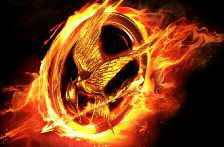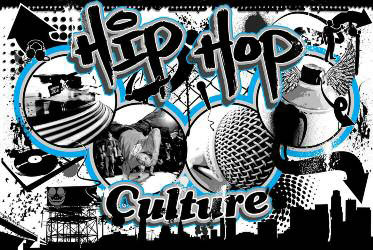
 |
FIGHT FOR COMMUNISM! |
International Communist Workers Party | |
Please send in drawings, photos, or written contributions

The Hunger Games movies, and similar films such as the Divergent series and The Giver, have a huge fan base. Even though the real action in Mockingjay will come in part 2, fans will see this movie anyway.
Mockingjay 1 is full of love, action, and violence. Katniss, the heroine, is a lot braver and stronger in the movie than in the book, but she still has issues, which makes her easy to identify with.
And teens, especially girls, are watching it, which makes it crucial to understand the political message. These movies are all about teenagers in a future dystopia,” fighting the power.” People have made a new society, which has some features of a communist society, but is clearly as bad or worse as the society that it replaced. The lesson the movie pushes is that if we fight for communism it will turn out bad: life in the good old USA is as good as it gets.
In Mockingjay 1, District 13 stands in for a “communist” society fighting against the power of the Capital, which cold-bloodedly bombs a hospital where workers who have survived a previous attack have taken refuge. If the Capital represents the system, District 13 represents rebels and radicals. It leads a working-class fight against a murderous, dehumanizing system.
However, it also represents all the worst anti-communist stereotypes. Everyone wears the same clothes and eats the same food. They have a daily schedule written on their arms. There’s one leader who is kind of like a dictator, who gives speeches to the crowd who respond with fists in the air, like communists are supposed to.
The Capital uses TV to control the whole country, just like the bosses use the media to control us. The leader of District 13 and her advisor use the media to manipulate the workers in all the districts into fighting against the Capital. They are every bit as cynical as the Capital, using Katniss as the “Mockingjay”— the symbol of the “revolution” — staging her in battle, using her to stir people up, to catch the fire, so they’ll fight.
Real communists don’t need a “symbol.” In fact, following a leader like Nelson Mandela, César Chávez, Martin Luther King, Mao or Ché Guevara has always kept people from thinking critically about how we can really build communism. It allowed these misleaders to sell out the struggle.
A lot of people these days know that capitalism is the problem. The bosses are afraid that young people who want to fight against it will fight for the only real solution: communism. So all these movies are to convince us that capitalism may be bad, but communism would be worse.
In fact, communism is a society without money, bosses, cops or borders, where we will cooperate and work together to meet the needs of our class. We’ll share what we have with no bosses telling us what to do. Keep reading Red Flag and our pamphlet Mobilize the Masses for Communism to learn more about communism and join us!

In the capitalist, commodity-driven, society we live in today, all music seems to be repetitive with overly sexualized themes. Sex and money are the key themes perpetuated in the music genre of Hip-Hop rap today, but it was not always that way. This genre has historically received criticism for violence-driven themes and messages. It was not always that way either. Hip Hop was a genre of music that emerged in New York among black youth in the 1970s after the mass anti-racist struggles. The genre grew in the 1980s and the 1990s, which is now considered by some to be the golden age of Hip-Hop.
Hip-Hop of the 1980s and 1990s had a message to it. Hip-Hop of that time described the struggles that blacks and all working class people faced: police brutality, racism, classism, and the drug epidemic which still afflicts working class communities today.
Rappers such as 2pac, MC Lyte, Common, Public Enemy, and A Tribe Called Quest rapped about social issues which uplifted people and made them think. Unfortunately, at the turn of the century the music industry and rap in general underwent a significant change. BET (Black Entertainment Television network) has banned and failed to show or rotate any of the artists mentioned or show any support to rap artists who now fall under the sub-genre of “conscious rap” or underground.
Most of this also comes down to capitalist politics in the music industry. Where there were numerous sources to release music from in the 80s and 90s, now all of the major music distribution is handled by Universal Music group, Warner Music group, and EMI, which control almost all of the music that we listen to today.
In today’s Hip- Hop, songs such as “Life Style” and a number of other songs which teach people to chase the dreams of millionaire status and ignorance to the real working class conditions flood the air waves. This doesn’t help youth to be involved in discussions or struggles against the status quo, which is exactly what the bosses fear.
Although Hip -Hop has gone through a change in what is considered popular subjects for distribution today, there are still artists who stay true to their craft. One of the most interesting political Hip-Hop artists today, Boots Riley, is openly anti-capitalist--his “Pockets Full of Slavemasters” is worth listening to--but its hits on YouTube number in the hundreds, because he doesn’t have corporate backers.
Underground artist like Rebels to the Grain distribute their music through underground channels where they are freely able to rap about what they wish without the filter of capitalist agenda.
In a communist world, music will be created and distributed for peoples’ enjoyment. There will no longer be a need for commodity glorification because all need s will be met collectively by the masses. Also we in ICWP understand that certain ideas won’t be changed overnight. This will create further struggle to weed out capitalist ideology that is so heavily prevalent in music today regardless of genre.
